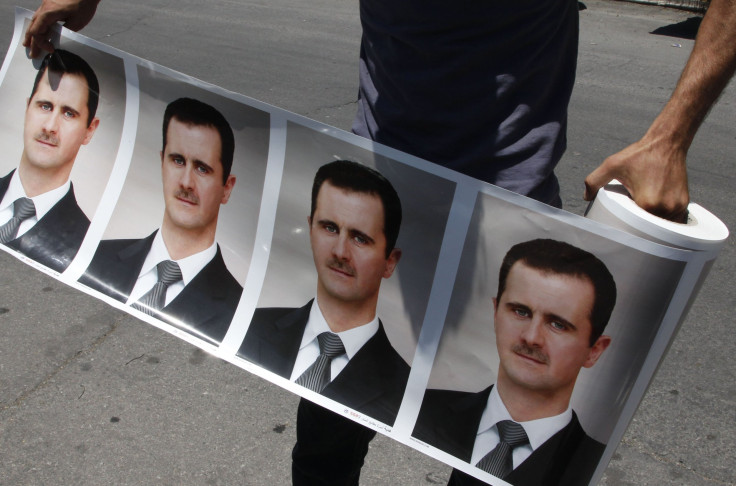Syrian President Bashar Assad Ready To Share Power With 'Healthy' Opposition: Putin

Syrian President Bashar Assad is ready to hold parliamentary elections and share power with a “healthy” opposition, Russian President Vladimir Putin, a close ally of the increasingly isolated Middle Eastern leader, reportedly said Friday. The last time Syria held a parliamentary election was in 2012, when the coalition led by Assad’s ruling Baath Party won most of the seats.
“Overall there is an understanding that the unification of forces in the fight against terrorism should proceed in parallel with some sort of political process within Syria,” Putin reportedly said on the sidelines of a conference in the Russian city of Vladivostok. “[Assad] is in agreement with this, up to holding snap elections for, say, parliament, as well as establishing contacts with the so-called healthy opposition and bringing them into the leadership.”
However, the Russian president did not elaborate on who, or what, the “healthy” opposition is.
While the U.S., the European Union and the Persian Gulf nations have sided with Syrian rebels and opposition since unrest in the country began in 2011, Russia -- a staunch supporter of the Syrian government since the Soviet era -- has refused to do so, opposing demands calling for Assad’s ouster.
Increased Russian involvement in Syria has also worried the U.S., which feels that Putin’s support for Assad undermines international efforts to remove Assad from power -- efforts that have been complicated by the rise of the Islamic State group in the region.
The rise of the Sunni militant group, which currently controls territories in northern Syria and Iraq, has contributed to a growing chaos in the war-torn nation. The U.S., which leads an anti-ISIS coalition, has been carrying out airstrikes on ISIS targets in Syria since last September, helping the so-called moderate Syrian rebels advance against the group. However, since the rebels are also opposed to Assad, Russia -- which is not part of the coalition -- has reportedly insisted that the U.S. also coordinate with the Syrian army. Meanwhile, the Syrian army has been accused by international human rights groups of using barrel bombs to target civilians.
“If it’s impossible today to organize joint work directly on the battle field between all those countries interested in fighting terrorism, it’s indispensable to at least establish some sort of coordination between them,” Putin reportedly said. “We do not impose anything, but we’re ready to contribute to internal dialogue in Syria.”
© Copyright IBTimes 2025. All rights reserved.






















